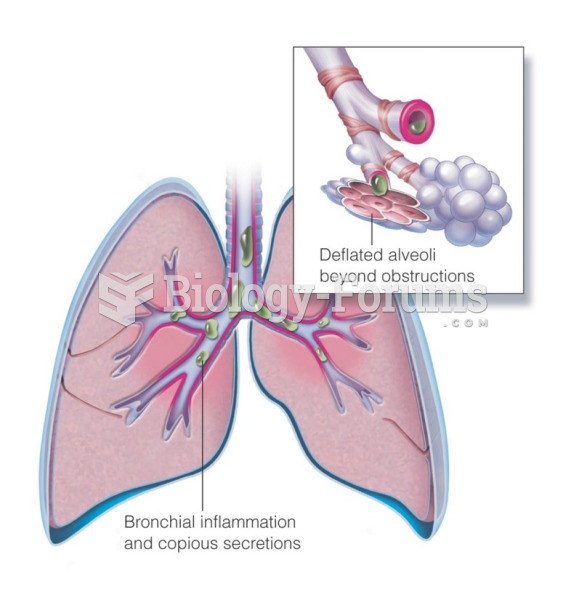Answer to Question 1
Correct Answer: 1,2,3
Rationale 1: Concurrent use with aspirin can significantly increase blood levels of zafirlukast, increasing the risk of adverse effects.
Rationale 2: Taking zafirlukast with food can reduce its bioavailability.
Rationale 3: Headache is the most common complaint from clients who take zafirlukast.
Rationale 4: Zafirlukast does not result in hair loss.
Rationale 5: Zafirlukast does not cause orthostatic hypotension.
Global Rationale: Zafirlukast is metabolized by CYP450 enzymes and has the potential to interact with substrates of the inhibitors of this enzyme. Use with warfarin may significantly increase prothrombin time (PT). Concurrent use with aspirin can significantly increase zafirlukast levels. Food can reduce the bioavailability; thus the drug should be taken on an empty stomach. Hair loss and orthostatic hypotension are not adverse effects.
Answer to Question 2
Correct Answer: 1,3
Rationale 1: Nedocromil (Tilade) may cause a bitter taste.
Rationale 2: Nedocromil (Tilade) should not be used to terminate an acute asthma attack; it is to be used for asthma prophylaxis.
Rationale 3: It may take up to a week of therapy before the benefits of Nedocromil (Tilade) are obtained.
Rationale 4: Nedocromil (Tilade) must be taken on a continuous basis for prophylaxis of asthma symptoms.
Rationale 5: Headache is not a common adverse effect of Nedocromil (Tilade).
Global Rationale: Approved in 1992, the profile for this agent is similar to that of cromolyn with the exception of a very bitter taste that causes some people to discontinue it. This is a particularly important consideration for children who will be less willing to taking distasteful medication. Like cromolyn, nedocromil is to be used only for asthma prophylaxis and not to terminate acute asthma attacks. The drug may require a week of therapy before benefits are obtained, and it must be taken on a continuous basis for asthma prophylaxis. Headache is not a common adverse effect.






